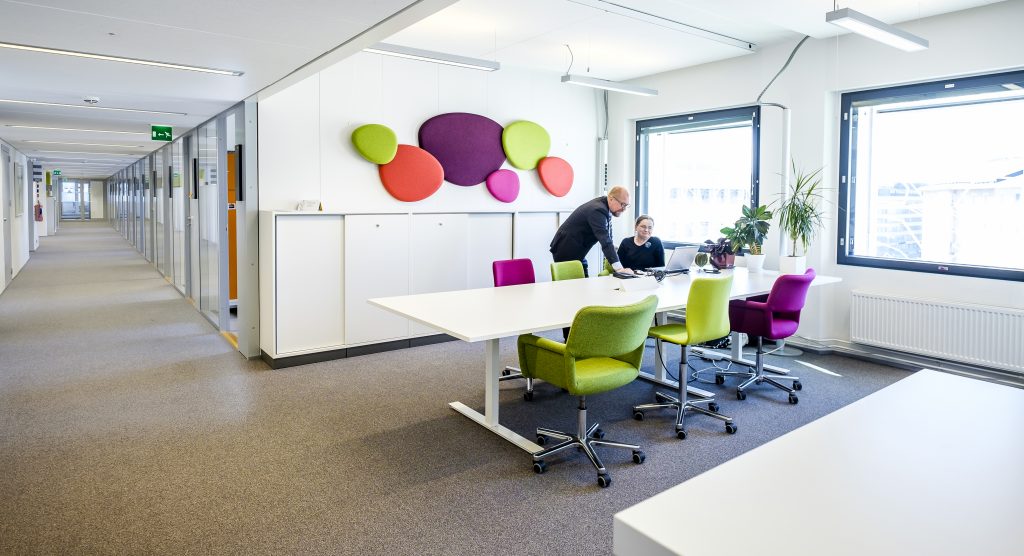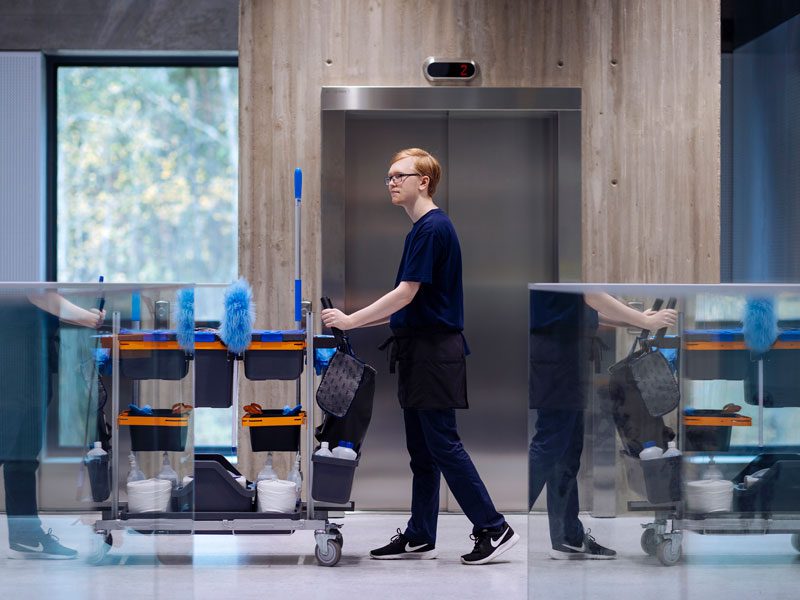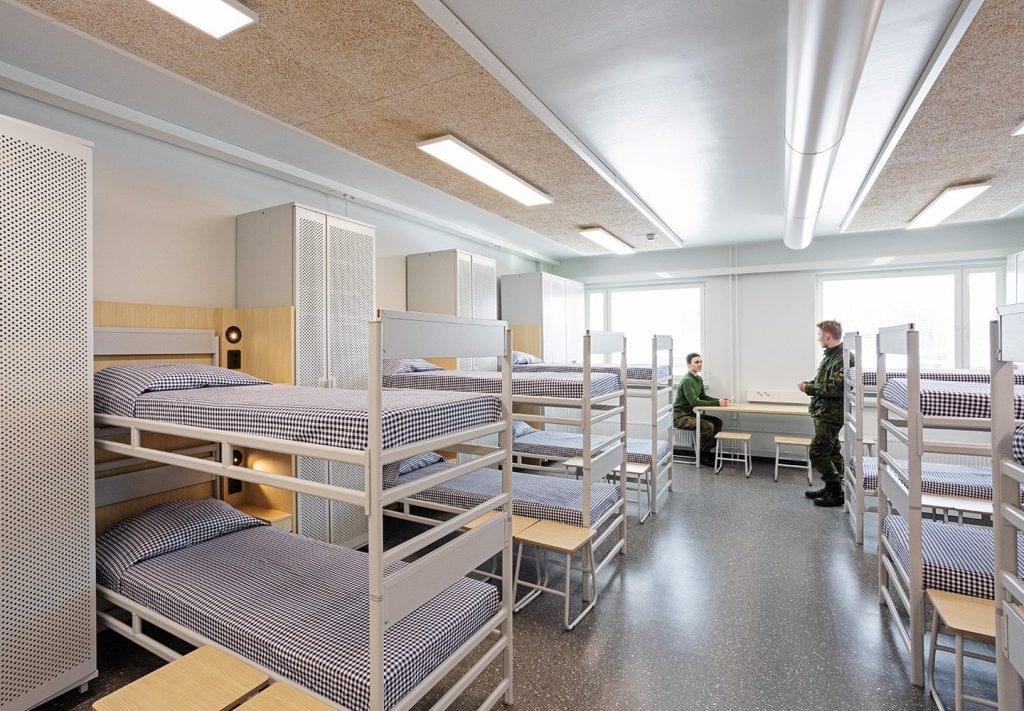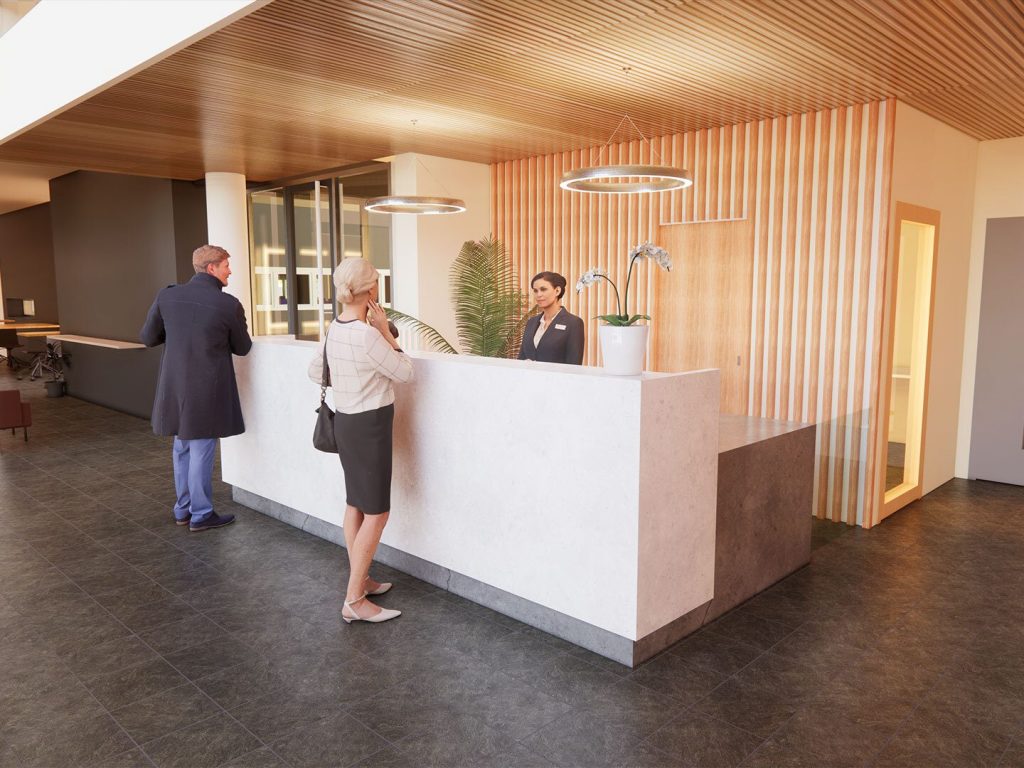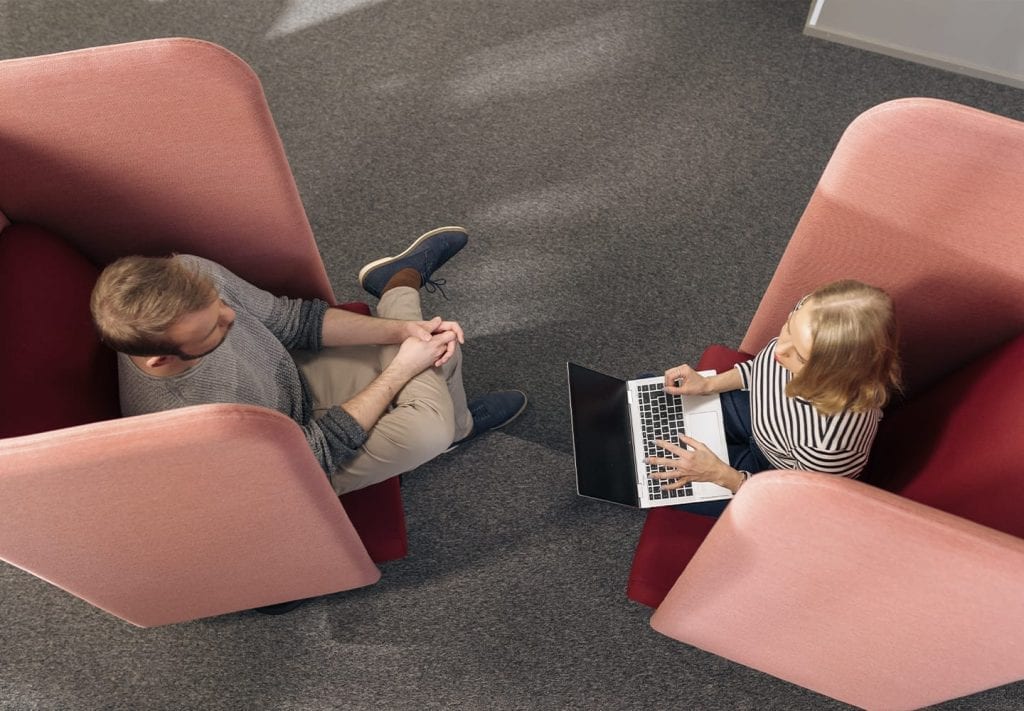1. Lower radiator temperature
Too high room temperature often results in indoor air stuffiness and a feeling if insufficient ventilation.
2. Air furniture
It’s a good idea to give new furniture a good airing to let emissions from it evaporate before bringing it into the room. Dirty upholstered furniture can also cause stuffiness.
3. Clean office, better mood
Cleaning affects indoor air quality and in turn human health. People also enjoy being in a clean workplace and are consequently more productive. Since shoddy cleaning can contribute to an image and sense of poor indoor air, the quality of the cleaner’s work also plays an important role.
4. Straighten up tangled wires
Untidiness hampers or even prevents cleaning entirely. Items, like wet coats and accessories that do not belong in the workplace deteriorate indoor air quality. Piles of paper and publications, books, ornaments and tangled wires on desks, open shelving and windowsills collect dust.
5. Odour nuisance
The use of various scented products such as air fresheners and fragrances burdens the indoor air and at worst can also trigger allergic reactions. The smell a smoker brings into the office with them can last several minutes.
6. Food and snacks in the right place
It’s a good idea to eat and store snacks in the kitchen. Food and snacks forgotten in cupboards or a banana skin thrown into a wastepaper bin, for example, can cause an odour nuisance in indoor premises.
7. Managed space efficiency
Stuffy indoor air may also be due to too many people working in the same space compared to the number for which the space was designed. It’s important to take adequate ventilation into account when converting office space into a meeting room.
8. Experts can help
It’s advisable to report indoor air problems in good time. The employer, property owner and occupational healthcare are responsible for establishing the causes and extent of indoor air symptoms.
Symptoms thought to be caused by indoor air in the workplace can be caused by an indoor air problem in the home. It’s recommended to contact the housing company’s housing manager or the landlord in matters concerning indoor air matters in the home. The municipal health inspector can also provide advice on establishing indoor air problems in the home.
The useful tips are based on the article Space user and indoor air (in Finnish) by Anne Korpi at Senate Properties. Download the full expert article here.
The article was updated on 28 October 2021

